For Indian-Americans, COVID-19 Crisis Hits their Two Homes
Indiaspora’s ChaloGive Raises over $ 1 Million for Food Security
An Interview with Arun Kumar, Chairman & CEO of KPMG in India
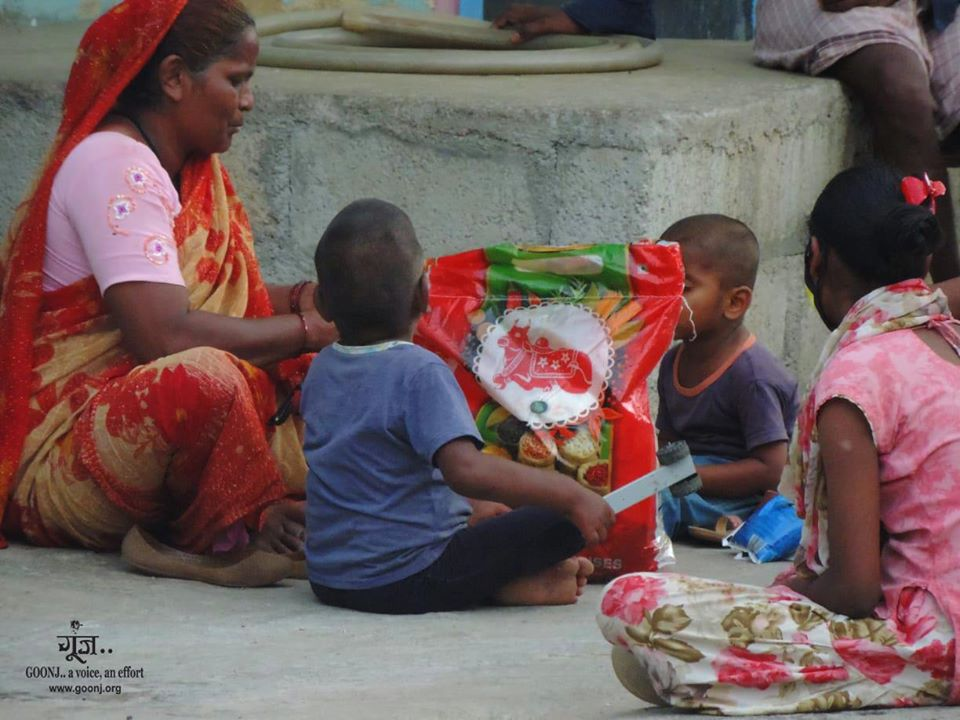
[dropcap]A[/dropcap]s coronavirus continues to ravage nations around the world, the loss is not only in human life but also in the very fabric of existence, the fundamentals of food and health, of a livelihood. While Americans waits for the federal government’s stimulus package to get their lives restarted, many individuals and institutions are already lending a hand in trying to bring normalcy.
A group of Indian-American entrepreneurs brought together by Indiaspora, a DC based community organization, donated $ 500,000 for food security in both India and the US in an initiative called ChaloGive for COVID-19 (www.chalogive.org) Within a week this figure has escalated to $800,000 and haa now reached one million dollars. All funding will address the food emergency brought on by the pandemic.
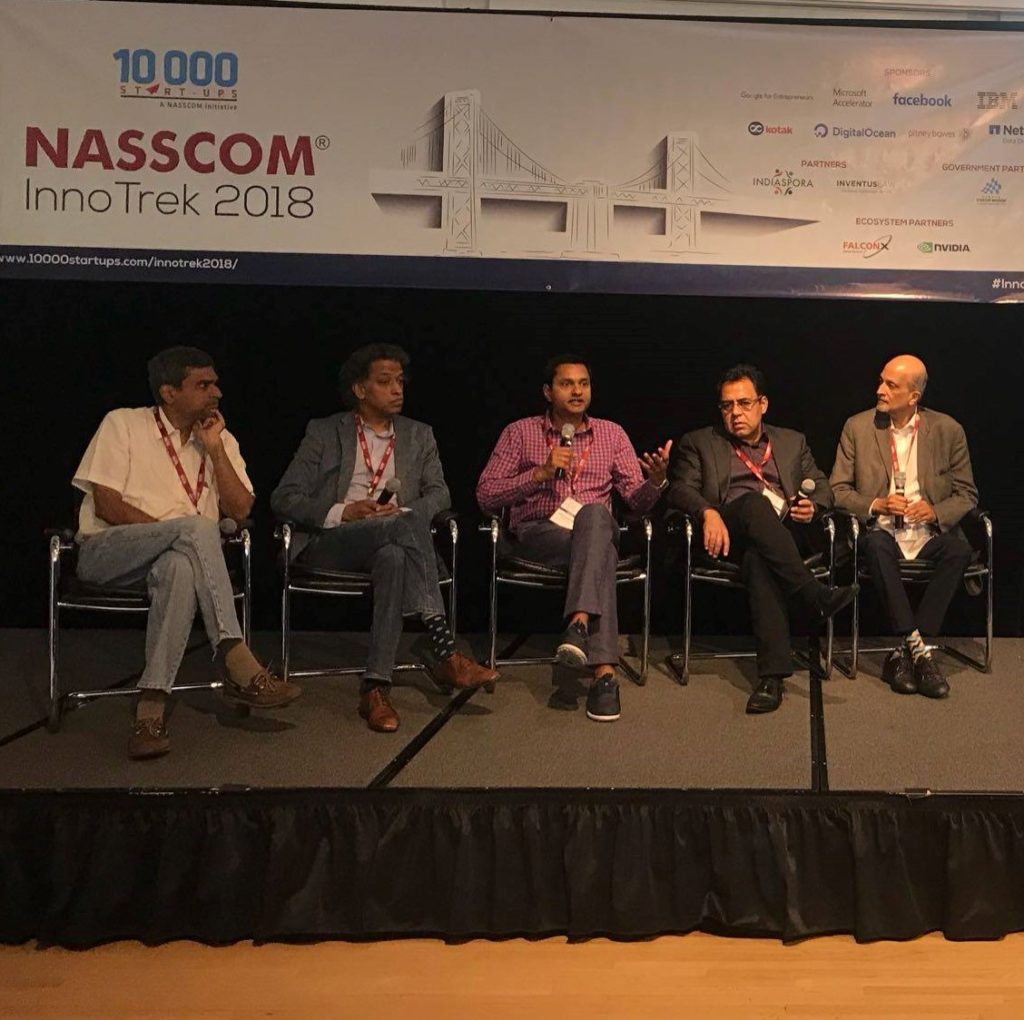
[dropcap]M[/dropcap]R Rangaswami, founder and chairman of the board of Indiaspora, recalls that the mandate was to do something immediately that was high impact and scalable, and which would help both America and India. He says, “The feeling was we made our wealth here and this is where we should take care of people – right now there are 22 million unemployed so it’s a big issue. But we also wanted to do something for the migrant workers in India who are really hurting at this time.”
The noted chef Cardoz who passed away from COVID-19 was a great humanitarian who had gone down to Louisiana during the Hurricane Katrina to cook for the people. This inspired Rangaswami and his team to think about the power of food for those who had lost their income during the pandemic. Indeed, one of the most pressing and urgent challenges facing both the U.S. and India right now is hunger, which was a deciding factor in Indiaspora’s new ChaloGive campaign.
The money is being allocated to two major organizations, Feeding America and Goonj in the United States and India, respectively. According to Feeding America, which is the nation’s largest hunger relief organization, more than 37 million people face food insecurity, with food banks struggling to meet a massive increase in need. In India, nearly 140 million migrant workers have been displaced and remain in dire need of food and other essentials.
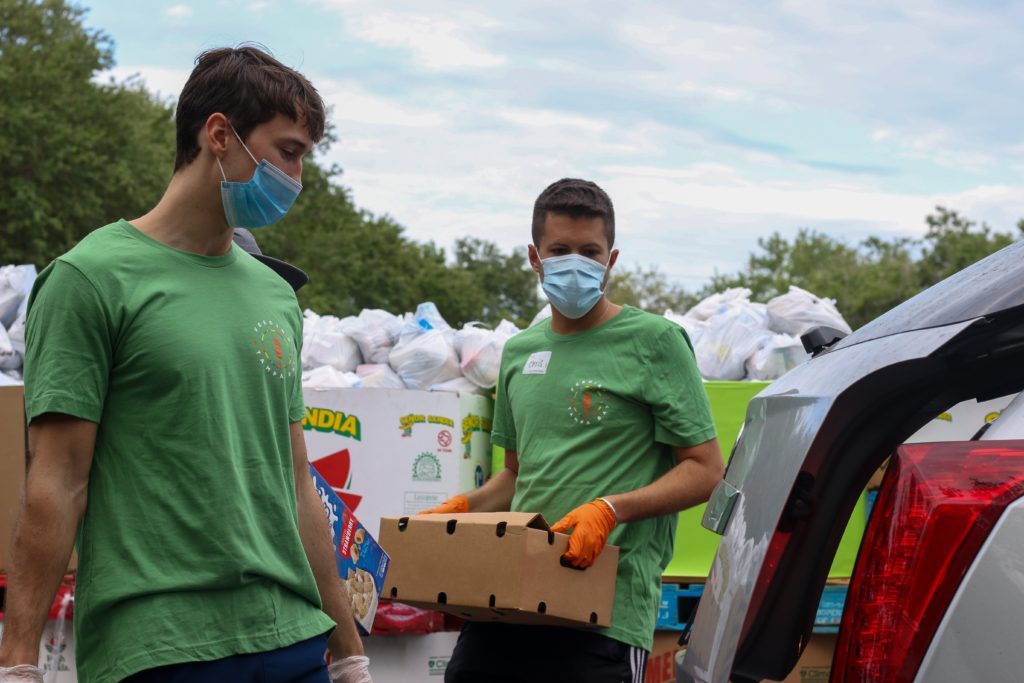
[dropcap] “T[/dropcap]his year, the COVID-19 crisis is driving more of our neighbors into food insecurity and putting a strain on food banks to provide more meals. Never has the charitable food system faced such tremendous challenge,” says Claire Babineaux-Fontenot, CEO of Feeding America. Two Indian-Americans are part of Feeding America – Dr. Vivek Murthy, the former US Surgeon-General is on the board of Feeding America, while Indra Nooyi serves on its Food Security Council.
Both Murthy and Nooyi are ambassadors of the ChaloGive campaign along with philanthropists Rohini and Nandan Nilekani, actor and social activist Nandita Das, Atul Satija, CEO of GiveIndia, and Raj and Aradhana Asava, founders of HungerMitao.
Goonj is the India partner which is noted for its innovative work amongst vulnerable communites. It is headed by Anshu Gupta, a social entrepreneur who received the Magsaysay Award for his transforming the culture of giving in India. Says Rangaswami, “What really attracted us to the Goonj model was their secret sauce – their logistics and supply chain which can transport the food from large metros to rural communities and villages.” Goonj will be providing ration kits for migrant workers and their families, consisting of 10 kilos of rice, oil, spices, soap and personal hygiene products, delivered to 14 states.
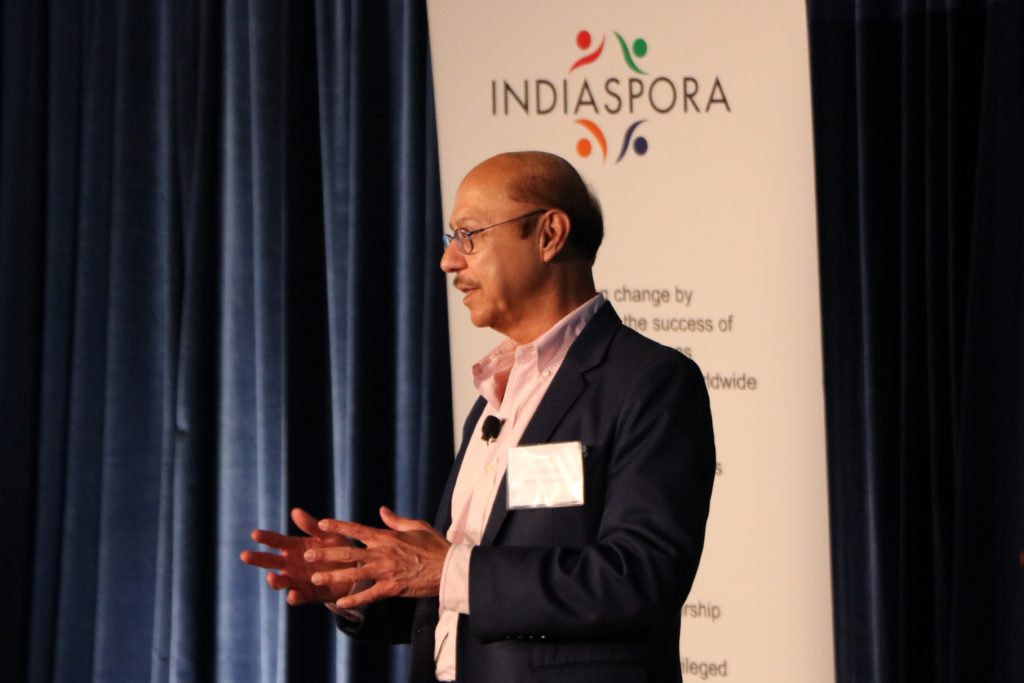
[dropcap]S[/dropcap]unil Wadhwani, one of the early pioneers of the IT industry, is the founder of the WISH Foundation and a donor to this initiative. He points out that many Indian-Americans have been affected by the pandemic as they are in the hospitality industry, both as entrepreneurs and workers. In this hard-hit industry, many people have lost their jobs. He says, “And when you look at India, the situation is even more challenging over there. As you know 90% of workers in India work in what’s called the informal sector. There are over 100 million migrant workers in India, and virtually all of them have lost their jobs and they have very little in the way of savings.”
Anand Rajaraman is a major funder of the ChaloGive campaign. He founded rocketship.vc and is a co-founder of Junglee and brings his experience from the business world to the nonprofit world. He says, “As an entrepreneur you cannot hope to solve all the problems of the world or try to deal with all the challenges created by the COVID scenario. You have to pick on one and focus on that.”
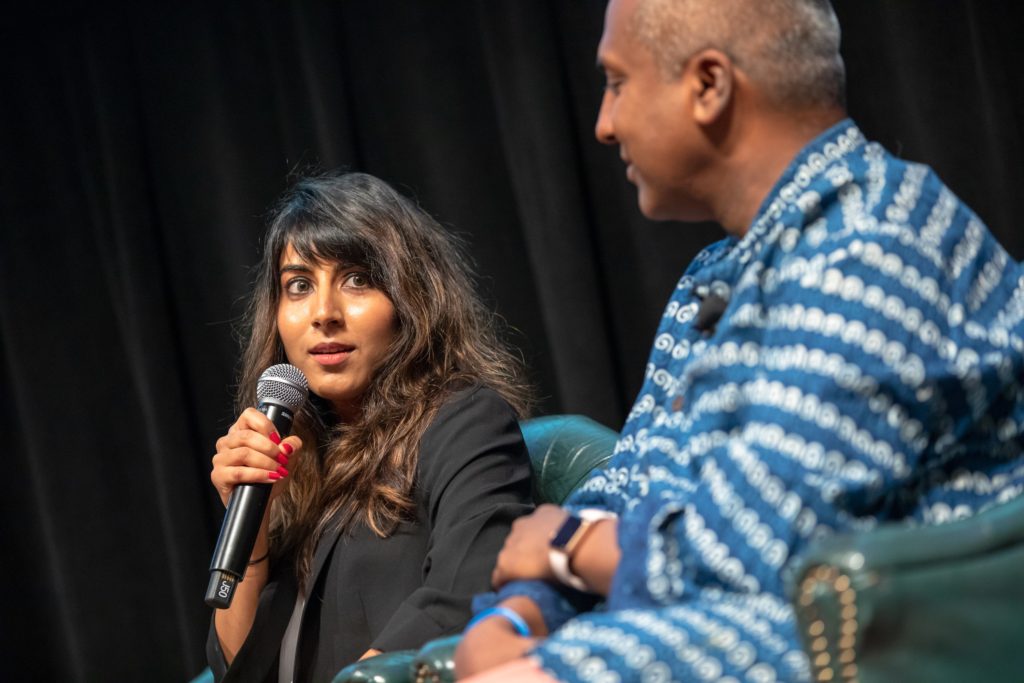
[dropcap]S[/dropcap]ejal Hathi, who is on the board of Indiaspora, is a resident physician working in the intensive care unit at Massachusetts General Hospital, where her team is battling the coronavirus crisis. As she says, “We may stand at the medical front lines of this pandemic, but a dire humanitarian crisis is unfolding at another front line, our country’s food banks and soup kitchens, where unprecedented numbers of our most vulnerable patients are seeking help even as these centers face their own major shortages.
“Our individual health — and our global resilience to this pandemic — depends just as much on maintaining these communities’ food security as it does on expanding our hospital capacity. That is the mandate of Indiaspora’s ChaloGive campaign: ensuring as many people as possible have access to the nutrition they need to stay healthy, and safe, outside of the hospital.”
Wadhwani recognizes that many people are doing their best to help, and Indiaspora is a vehicle to ensure that their money will reach where it is needed. “So this is a time when all of us who have some measure of financial stability in our lives to step up and give help, whether it’s in the US, whether it’s in India. But my only thought is – now is the time for all of us to step up and do the best we can.”
Stressing on the immediacy of the crisis, he adds one final thought: “If not now, then when? If not us, then who?
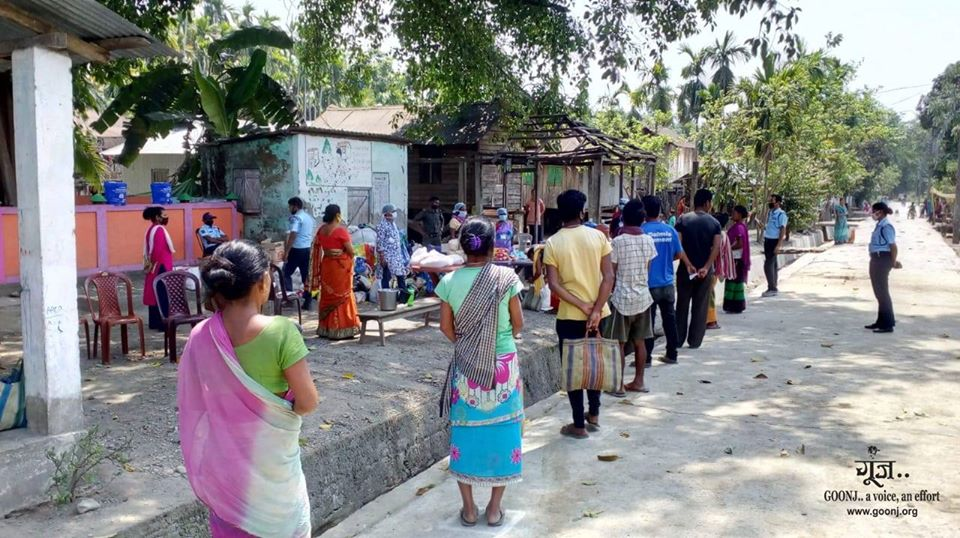
The Impact of Coronavirus in India and America
Q and A with Arun Kumar, Board Member of Indiaspora
(Arun Kumar is the Chairman and CEO of KPMG in India)
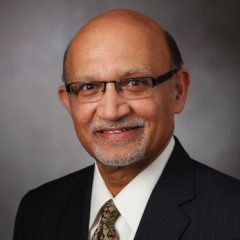
Having served as the Assistant Secretary of Commerce for Global Markets and Director General of the US in the Obama Administration, you are now in India as the Chairman and CEO of KPMG India. So in a way you have a foot in both countries – what are your insights about the impact of coronavirus in both countries?
COVID-19 has put the world economy at a major risk, with the epicenter of the pandemic shifting from China to Europe to the US in a matter of weeks. India has also seen a rapid rise in the number of cases over the past few weeks, but we had also had much learning from this situation and its handling in other geographies.
The decisive action of a complete national lockdown has prevented the number of cases and deaths from peaking. India, despite its lack of resources when compared to the large developed economies, has handled the crisis in a much more organized fashion.
The picture in the US is distressing. The states that saw the problem and acted early, led notably by California, seem to be ahead of the rest of the country in managing the situation. The US is also experiencing a very high death rate among the countries afflicted and reporting (hopefully with some accuracy). There should have been efforts there, much earlier than happened, to identify and isolate potential COVID-19 cases.
With contraction clearly in sight, stimulus spending will be required, in significant doses. In India’s case, if the impact of the virus is mild compared to other economies and the supply side revives faster, there will also be several opportunities as well – supplanting supply chains from China being a crucial one.
Tell me about the non-profit organization Goonj and how this funding will affect the lives of migrant workers. How will the food packages get to different migrant communities and is it a one-time deal or is there continuity over the months for families?
Goonj has a history and track record of providing support to marginalized communities, and those impacted at the grass root level – with their presence in 25 states, they have the infrastructure in place to reach these communities effectively. We have successfully partnered with Goonj in the past. We understand the structure and processes that they follow to ensure that help does indeed reach those most impacted.
Through its drive, Goonj is not only providing daily fresh food but also distributing relief kits. Each relief kit contains food staples and other basic supplies such as personal hygiene products for a family of 5-6 people, enough to last at least a month. Further, from what we understand, the NGO is also gearing up to deal with the aftermath of the pandemic, given it is evolving on a daily basis.
You have a lot of employees at KPMG India – 22,000 I believe! Will you be harnessing their energy for ChaloGive?
KPMG has 24,000+ employees in India. We are firmly committed to our values expressed as “Together, For Better,” – to work collectively for the welfare of our communities.
Currently, we have an ongoing initiative inviting our people to voluntarily contribute towards COVID-19 relief efforts. We are contributing to the PM Cares Fund as well as a few NGOs working directly with those most impacted.
One of the most pressing and urgent challenges facing India right now is hunger, which is a deciding factor in Indiaspora’s ChaloGive campaign. Our people are not only contributing towards the firm-wide effort but many of them are offering support in their individual capacity to NGOs ensuring basic food and other necessities to daily wage earners and others. We are still working through a list of NGO partners.
What are your thoughts on Indiaspora and its power to change lives and do good?
Indiaspora is a community of leaders from diverse backgrounds focused on the core purpose of making a substantive difference in meaningful ways. I have been associated with its initiatives since its earliest days, and have participated and witnessed focused activity on issues that matter. The ChaloGive campaign is a prime example.
The Diaspora are a potential asset to India, with their reach, experience and resources. Indiaspora aims to channel those advantages to the benefit of India as well as of the countries where the Indian emigrants reside.
( This article was first published in my weekly column India in America in CNBCTV18.com )
Related Articles:
Meet New York Doctors on the Coronavirus frontlines
New York becomes the epicenter of the Coronavirus pandemic in America
New York in the Time of Coronavirus



